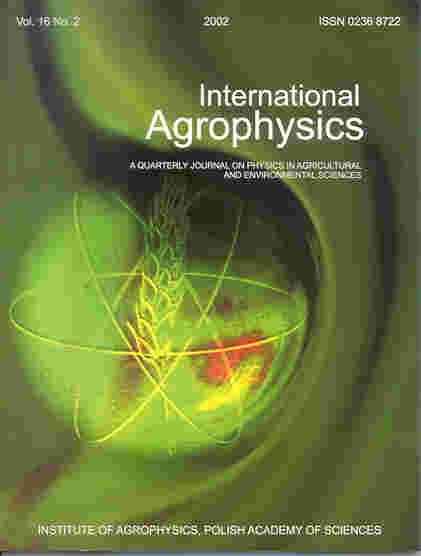|
|
|

|
|
| International Agrophysics |
| publisher: | Institute of Agrophysics
Polish Academy of Sciences
Lublin, Poland |
| ISSN: |
0236-8722 |
vol. 19, nr. 3 (2005)
|
|
|
previous paper back to paper's list next paper
|
|
|
Germination capacity and health status of hybrid alfalfa seeds after laser treatment
|
|
| (get PDF ) )
|
|
|
M. Wilczek1, R. Koper 2, M. ∆wintal1, T. Korni≥≥owicz-Kowalska3
|
|
|
1 Department of Crop Production, University of Agriculture, Akademicka 15, 20-934 Lublin, Poland |
|
|
2 Department of Physics, University of Agriculture, Akademicka 15, 20-934 Lublin, Poland |
|
|
3 Department of Agricultural Microbiology, University of Agriculture, Akademicka 15, 20-934 Lublin, Poland |
|
|
vol. 19 (2005), nr. 3,
pp. 257-261
|
|
|
abstract
Laboratory examinations of the germination of the Polish hybrid alfalfa var. Radius were conducted completely randomly with four replications in 2002. The following factors were taken into consideration: 1) irradiation with divergent He-Ne laser beam with a surface power density in the irradiation plane of 0, 3 and 6 mW cm-2 applied 1, 3 and 5 times; 2) seed dressings: Funaben T, Sarfun T 65 DS and Super-Homai 70 DS in a controlled environment. The number of seeds germinating normally, those germinating abnormally, hard seeds and those infected with fungal disease were determined in the experiment.
It was found that the laser treatment of seed significantly increased the percentage of seeds germinating normally and de- creased the share of seeds germinating abnormally. This had no impact on the number of hard seeds, and significantly decreased the percentage of seeds infected by fungi except for the R 6x1 dose. Hybrid alfalfa seeds were most abundantly infected by fungi of the Penicillium group (Penicillium verrucosum ver. cyclopium and Penicillium expansum). Seed dressings completely eliminated fungal disease in the seeds.
|
|
keywords
laser treatment, hybrid alfalfa, germination
|
|
|
|
|
|
|